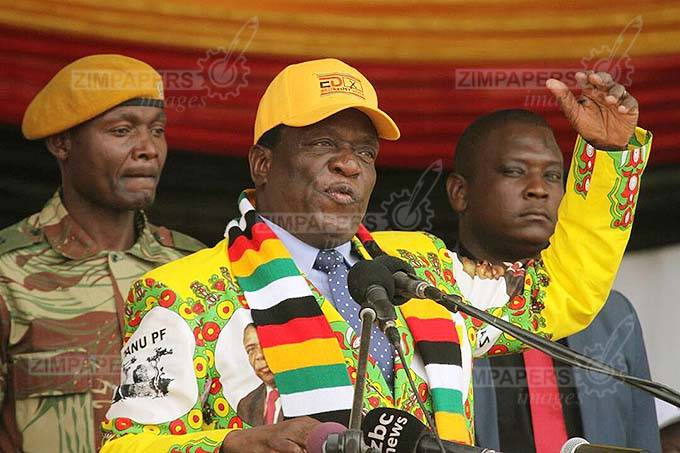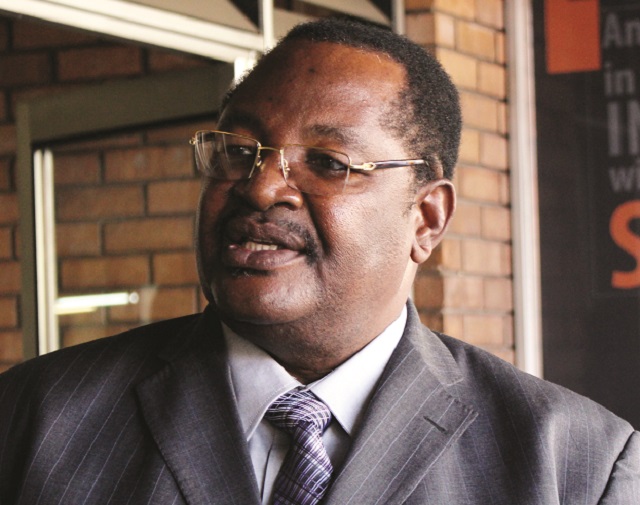EDITORIAL COMMENT: President Mnangagwa, Zanu-PF coasting to landslide victory

Three pollsters have, over the past 10 days, released probable voting patterns in the July 30 harmonised elections, all pointing to a crushing victory by President Emmerson Mnangagwa and his party, Zanu-PF.
First to announce the findings of the likely voting pattern in the July 30 harmonised elections was Pan African Forum Limited (PAFL), a Kenya-based network of African academics on May 29. It forecast that if elections had been held on 30 May, Zanu-PF presidential candidate Cde Mnangagwa would garner 70 percent of the vote with MDC Alliance leader Mr Nelson Chamisa emerging a distant second with 24 percent.
With a margin of error of +/-2 percent, the study was a nation one which sought the views of 3 110 adults.
Yesterday, Trends and Insights for Africa (TIFA) issued its own findings, saying if elections were to be held today, President Mnangagwa would garner 68,5 percent of the vote. Mr Chamisa would get 19,5 percent, National People’s party (NPP) leader Dr Joice Mujuru two percent, and others 0.5 percent of the vote.
With a +/- 2.19 percent margin of error and a sample size of 3 005 adults who are registered to vote, the survey was a national one as well and conducted from May 30 to June 4, 2018.
The survey said eight percent of the study population was undecided on whom they would back with the majority, 87 percent, showing strong leaning towards President Mnangagwa and 13 percent to Mr Chamisa.
Also yesterday, the Mass Public Opinion Institute (MPOI), a Harare-based organisation, released its own findings after it conducted a survey in association with Afrobarometer Network. It forecast that President Mnangagwa would beat Mr Chamisa, but with a much thinner majority, 42 percent of the vote versus 31 percent.
PAFL and TIFA projections are basically similar, 70 percent and 69 percent for President Mnangagwa and 24 percent and 20 percent for Mr Chamisa.
While MPOI’s sees the President scoring less than 50 percent plus one of the vote, the probable voting preference towards Mr Chamisa at 31 percent is not far from the two other pollsters’ views.
“Most Zimbabweans are registered and ready to vote in July, but while the ruling Zanu-PF appears to have a lead among declared voters, the outcome is far from certain,” said MPOI.
“Among voters willing to declare their preferences in the presidential race, Zanu-PF held a 42 percent to 31 percent lead over the MDC-T, but the intentions of fully one-fourth of voters remained unknown.”
Opinion polls are not the election, we appreciate, but they indeed give clues into possible voting trends. It does not escape our attention that Zanu-PF is consistently ahead, so far at least. The voting population seems to give the ruling party the lift it needs, as 87 percent shows strong support towards President Mnangagwa and 13 percent to Mr Chamisa, according to TIFA.
Another endorsement that the party could welcome is that of the population, 55 percent reported that the country is moving in the right direction while 30 percent felt the opposite. If 55 percent of the population feel that the country is on the right path, and that path is being led by President Mnangagwa and his party, chances are very high that those people actually support him thus are likely to vote for him and his party come July 30.
To most Zimbabweans the findings of the three organisations only serve to confirm the obvious — that Zanu-PF is the most popular political party on the local political scene. It is a party of liberation, a party of experience, a party with a national outlook, a party with the genuine interest of the people at heart.
It led the fight for Independence in the 1960s to the 1970s and freedom was achieved on April 18, 1980. It has led the country with distinction since then.
Thanks to successive Zanu-PF governments, the country has the highest literacy rate in Africa, has scored successes in delivering health services to the previously marginalised, has built and continues to build infrastructure to anchor national development.
Zanu-PF, through its Government prosecuted the land reform and redistribution programme. The revolutionary exercise triggered a backlash from the West who were eager to punish the country for dispossessing white farmers of the land which they had secured by military conquest, brute force and unjust laws.
Although the people have been suffering economic hardship over the past 18 years because of Western economic sanctions, the new dispensation under President Mnangagwa that assumed office in November last year has positioned the economy back on the rails and is reengaging the West. Investment commitments are pouring in and should get more concrete when Zanu-PF — as PAFL, TIFA and MPOI predict — secures a roaring mandate on July 30.











Comments